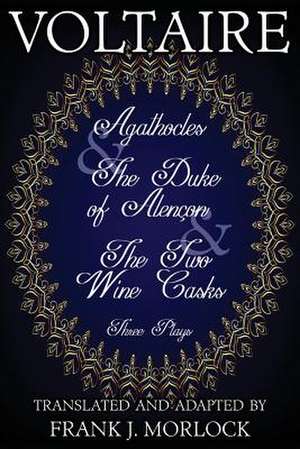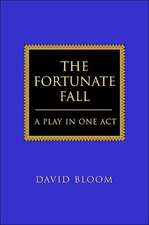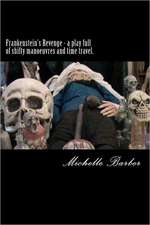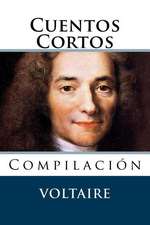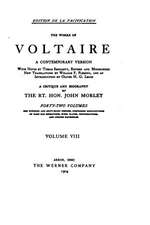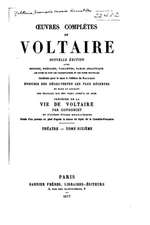Agathocles & the Duke of Alencon & the Two Wine Casks
Autor Voltaireen Limba Engleză Paperback – 29 mai 2013
Preț: 100.99 lei
Nou
Puncte Express: 151
Preț estimativ în valută:
19.32€ • 20.22$ • 16.05£
19.32€ • 20.22$ • 16.05£
Carte tipărită la comandă
Livrare economică 02-16 aprilie
Preluare comenzi: 021 569.72.76
Specificații
ISBN-13: 9781479401093
ISBN-10: 1479401099
Pagini: 198
Dimensiuni: 152 x 229 x 11 mm
Greutate: 0.3 kg
Editura: Borgo Press
ISBN-10: 1479401099
Pagini: 198
Dimensiuni: 152 x 229 x 11 mm
Greutate: 0.3 kg
Editura: Borgo Press
Notă biografică
François-Marie Arouet (1694 - 1778), known by his nom de plume Voltaire, was a French Enlightenment writer, historian and philosopher famous for his wit, his attacks on the established Catholic Church and Christianity as a whole and his advocacy of freedom of religion, freedom of speech and separation of church and state.
Voltaire was a versatile and prolific writer, producing works in almost every literary form, including plays, poems, novels, essays and historical and scientific works. He wrote more than 20,000 letters and more than 2,000 books and pamphlets. He was an outspoken advocate of civil liberties, despite the risk this placed him in under the strict censorship laws of the time. As a satirical polemicist, he frequently made use of his works to criticize intolerance, religious dogma and the French institutions of his day.
